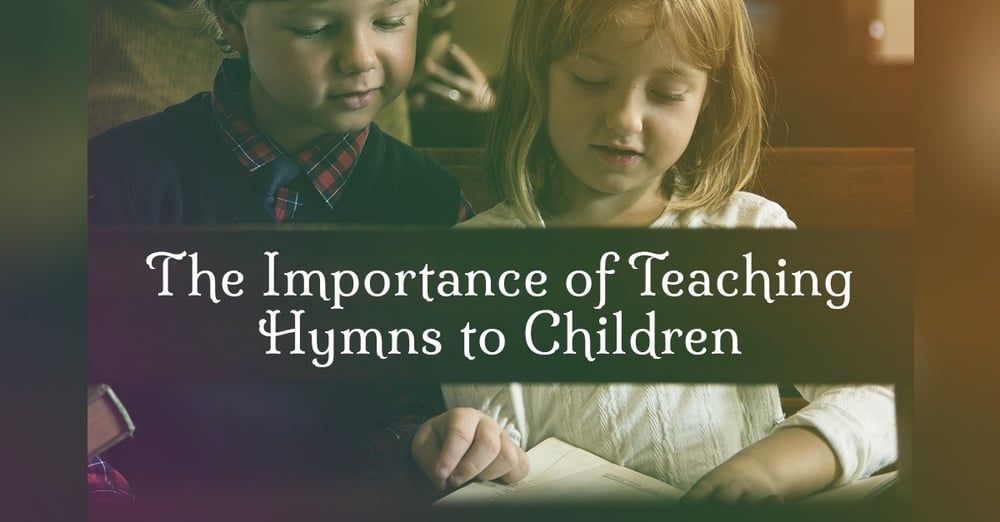Christianity is not a simple thing. As church musicians, we understand this and strive to use our music to help teach doctrine in all of its complexities and subtleties to congregants both young and old. In fact, what better way to prepare and teach our young people than by teaching them robust, doctrine-filled hymns?
As Lutheran schools around the country wind down at summer’s approach, students and teachers will be looking forward to the final chapel service of the year. These services may vary, and I cannot speak to every school and every chapel. But I can tell you one thing: the children at a certain Lutheran school on the East coast will be singing hymns. In fact, they will sing all six stanzas of the hymn “Jesus, Priceless Treasure” (LSB 743)—from memory.
They Can Do It!
Take a look at the text of “Jesus, Priceless Treasure”. The language is slightly archaic and the concepts touched on are often serious and frightening. Yet an entire class of four- and five-year-olds memorized all six stanzas nearly better than I did. And not only did they and their schoolmates in older grades memorize it, but they also understand much of what it is saying and reflect that in their singing. They vehemently defy Satan in stanza 3 (so much so that I often have to ask them to tone it down a little) and let loose in their demonstration of a shaking earth, quaking hearts, lightning flashes, and thunder crashes in stanza 2. One class even drops their volume level by half in stanza 3 at the words “silent, bow before Him”. Stanzas that begins with the word “Hence!” cannot be missed when these children sing it.
And furthermore, in addition to memorizing and understanding the hymn, these students all thoroughly enjoy singing it. They often break out singing “Jesus, Priceless Treasure” at recess or while papers are being handed out in class. They ask often if they can sing the whole thing during music class. When told that we will be singing it in music class, there are quiet exclamations of “yes!” and “yay!” from around the room. Children can and should memorize and enjoy these complicated, difficult hymns. What better way to teach doctrine?
Ah, Simplicity
This is not to say that simple Christian songs do not have their place. It is often a welcome break for kids to be able to sing the classic, “fun”, children’s praise songs. The students enjoy these songs and can quickly learn them as opposed to taking weeks to drudge through the text of a hymn. These songs are often an opportunity to get students up and moving and releasing energy. And, most importantly, these songs praise the Lord.
But we deprive children of the greatest riches when we assume they are too young to learn hymns. We insult them when we presume they are incapable of memorizing the text. And we give them grounds to think of hymns and church as “boring” when we automatically expect them to think of hymns as old and uninteresting. Children, as with all humans, love what they know. So when we help them to know hymns, our students love them dearly and look forward to singing them. If only every church member had that attitude!
What Now?
Perhaps you are already on board with teaching hymns and have been doing it for years. Perhaps, though, you never have considered the joy that can come from learning hymns. If you are a Lutheran school teacher, just try it. Try teaching your students a hymn. Use pictures, motions, repetition, and the hymnal itself. At first, it might be difficult and boring if your students are not used to it. But after a while, they will come to love it. If you are a parent, you have the great opportunity to teach your children hymns at home. Not only are they singing praise to God, but this also affords them an opportunity to more easily participate in church when a hymn they have learned is sung.
As Christians, we strive for excellence in all things, especially before God. Take a look at the music you are teaching your students. Is it excellent? Is the text true and rich and complex? Does it tell the story of salvation? Is the music timeless and beautiful and fitting for the text? To be sure, even slapping the label of “hymn” on something does not necessarily guarantee its excellence. Let us as knowledgeable church musicians help guide both our congregation and our school children in learning excellent music.
Teaching lengthy, robust, doctrine-filled hymns is hard work. But take heart! I promise you the reward will be great.
If you enjoyed this post, click the button below read more posts on hymnody!












.jpg?width=50&height=50&name=IMG_20220621_160541_456%20(1).jpg)


